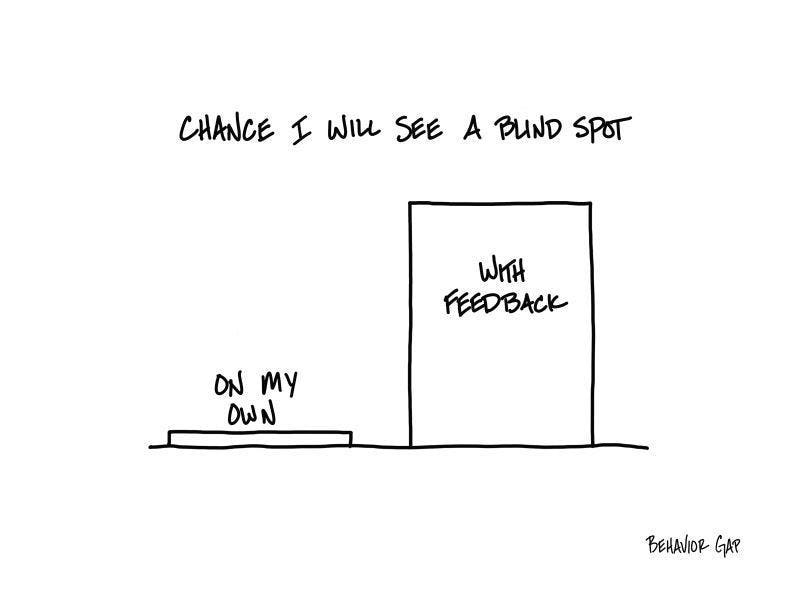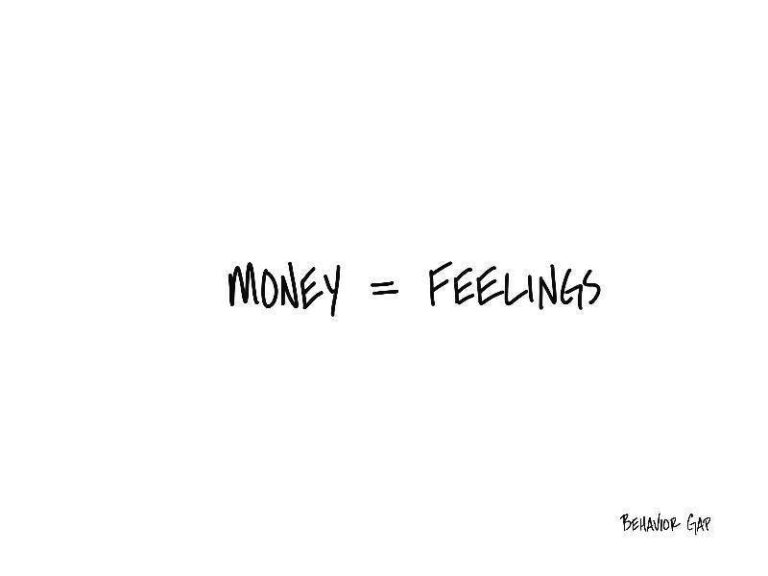
Carl Richards is a Certified Financial Planner™ and creator of the Sketch Guy column, appearing weekly in The New York Times since 2010. The following article is reproduced with permission from his weekly newsletter and his website can be found here.
Greetings, Carl here.
Psst. Excuse me. I’ve got a secret.
I feel like I should be talking really quietly right now, but first, I need to warn you. This secret is going to seem incredibly obvious. You may even wonder why I’m going to tell you about it at all.
The secret comes in two parts:
1- We all have blind spots.
2- By definition, we can’t see them.
That’s it… that’s the secret.
See what I mean about it being obvious?
They’re called blind spots for a reason… it’s because you can’t see them. But here’s the real tragedy: we’re often totally uncoachable when it comes to dealing with them. Not only can we not see them, but when somebody points them out, we don’t believe they exist!
I know this is true because I’ve experienced it myself. For months, my trainer was trying to help me solve a stomach issue. He suggested I keep a food journal to see if my symptoms pointed to an allergy. For months, I refused.
“I already know what I’m eating,” I said, “I don’t need to write it down in a journal!”
Sound familiar?
Trust me… You have blind spots. But there is hope. There is a solution.
The solution is to be coachable. We need to find, and then listen to, other people who can see our blind spots.
A friend of mine, a retired investment banker, did just that himself. This guy knew his way around money and definitely knew how to invest. But he was looking for help with his money. I asked him, “Of all the people I know, you’re in the best position to deal with your own money. Why do you need help?”
“Carl,” he replied, “I could manage my own money, except for the ‘I’ part.”
He understood that when it came to his own money, he had a blind spot. And he recognized the value in having someone else help him see the mistakes he might make.
This is one of those cases where the solution is simple but not easy.
You don’t hire a coach—whether to help you with money, business, creativity, or sports—because you’re stupid.
You hire a coach because they’re not you.
Other people can see things you clearly cannot see.
Your job is twofold:
1- Don’t run away from the feedback of people who can see your blind spots.
2- Listen to feedback when you get it. Treat it like gold when it shows up, don’t be defensive.
If you can do that, you may learn to see what you were previously blind to. And that can be incredibly helpful in investing, relationships, or life in general.
…
-Carl
P.S. As always, if you want to use this sketch, you can buy it here.


